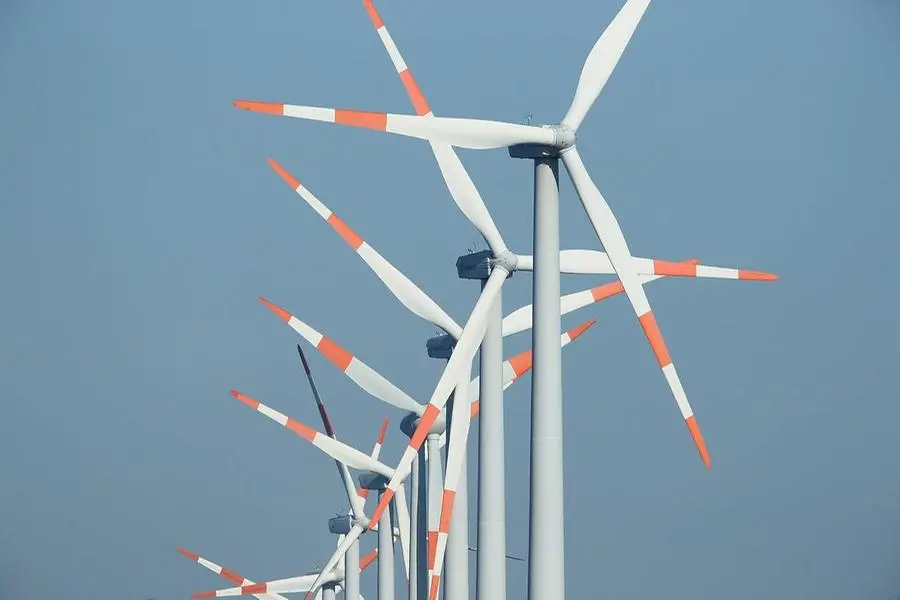PHOTO
FRANKFURT - German grid firm Amprion on Thursday said it plans to invest around 22 billion euros ($24 billion) over five years in its power transmission network, one of four in Europe's biggest economy, to make lines and cables fit for the transition to more renewable electricity.
"Amprion is speeding the expansion of networks and continues to grow," it said in a press statement detailing 2022 company data.
Investment requirements in 2023 alone are expected to amount to 2.8 billion after rising 15% to a new record of 1.5 billion euros in 2022, it said.
Amprion, 25%-owned by utility RWE, operates 11,000 kms (6,835 miles) of high-voltage transport grids.
Berlin wants the power sector to be 100% green by 2035.
To achieve that, transmission grid operators (TSOs) must extend their infrastructure to reach green energy sites and transmit their output, crucially connecting the industrial south to northern wind power, and to hook up new electrolysis plants which will produce green hydrogen from electricity.
The TSOs' costs are mainly shouldered by consumers via grid usage fees, which account for about a quarter of electricity bills, plus via external finance, such as bonds.
Their earnings and spending are overseen by the national regulator.
Amprion said its regulated asset base (RAB), a key measure to value power and gas grids, rose by 28% to 6.6 billion euros, thanks to higher revenue and the fact that more than 80% of investments were made into extending already existing assets.
Revenue from the core grid business was up 18.6% at 2.1 billion euros.
Amprion's costs for system intervention measures on the grid by engineers, known as "redispatch" which takes account of rising intermittency of wind and solar generation, broadly doubled to 2.4 billion euros in 2022.
The adjusted net profit decreased 12.4% to 228.2 billion euros, for which Amprion cited regulatory effects and external factors governing its revenue spans from system services, but added it was still in line with average profits in recent years.
($1 = 0.9098 euros)
(Reporting by Vera Eckert; Editing by Rachel More and Emelia Sithole-Matarise)





















